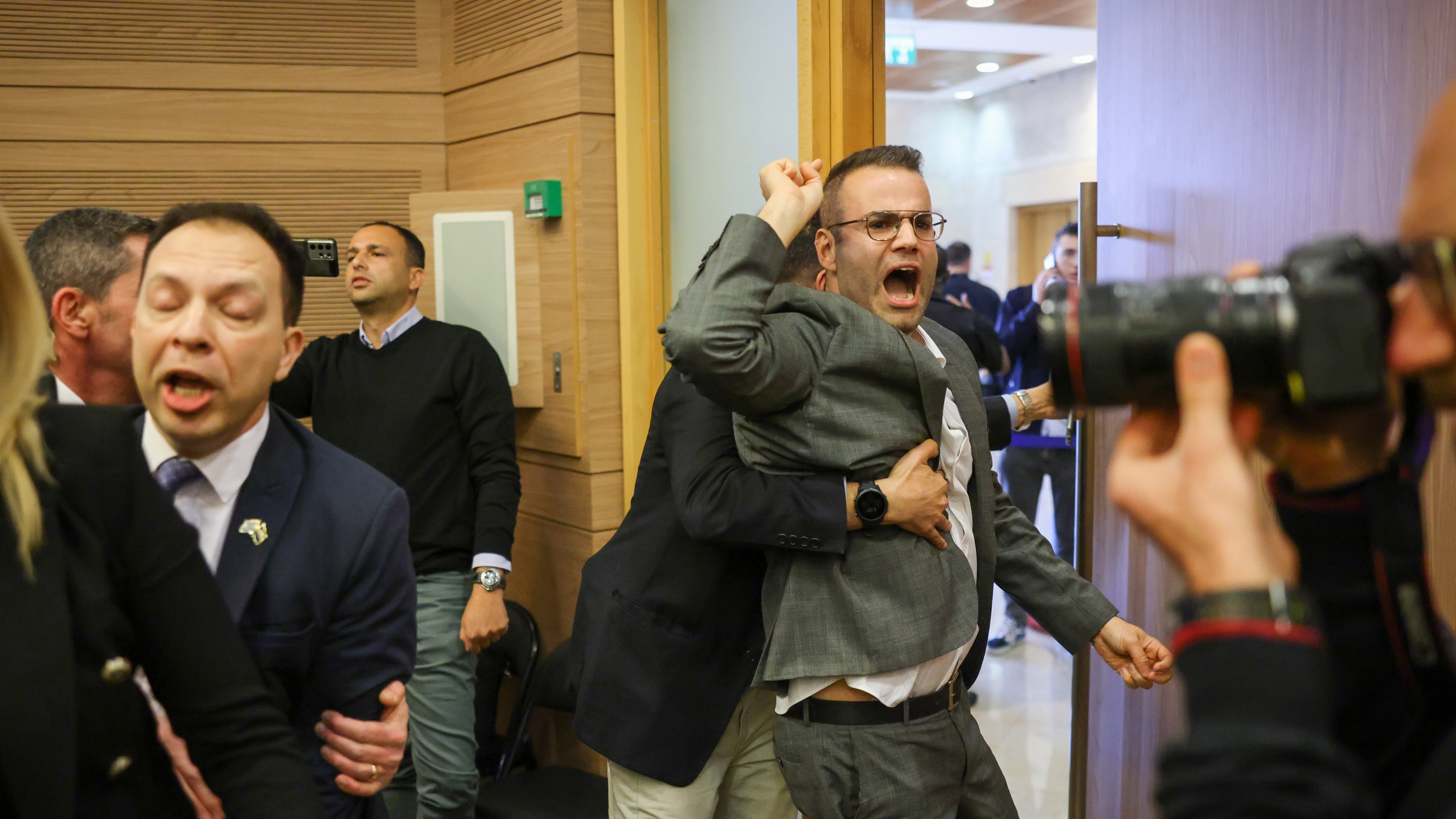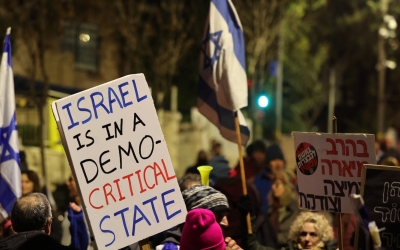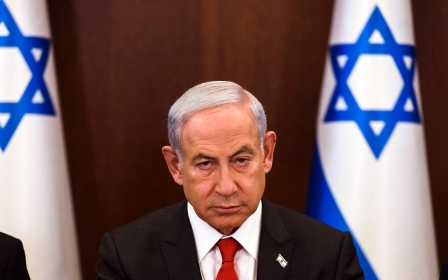Israel's president says 'feeling of mourning' as MPs progress judicial overhaul

Israeli President Isaac Herzog said on Tuesday there is a "feeling of mourning" after MPs passed first reading of bills that are part of a government plan to overhaul the judiciary.
The bills, which will give the governing coalition effective control of judges' appointment and revoke the Supreme Court’s ability to strike down quasi-constitutional basic laws, were passed with 63 votes in favour and 47 against on Monday amid an outcry from the opposition and huge protests.
The second and third readings of the bills are set for late March before a final vote in Israel's parliament, the Knesset.
"This is a very difficult morning. There is a feeling of mourning, there is no feeling of celebration," Herzog said.
"There is a feeling of sadness because many citizens from all parts of Israeli society, many people who voted for this coalition… are anxious about the unity of the nation."
After the passing of the bills on Monday, Prime Minister Benjamin Netanyahu said it was "a big night and a big day".
The bills are part of a wider judicial overhaul plan presented by the far-right Netanyahu-led government earlier this year.
In addition to giving the government de facto power to select judges, the plan proposes measures that will seriously impede the Supreme Court's power to curb laws it deems illegal.
Currently, the Supreme Court can disqualify government legislation if it contradicts Israel's 13 basic laws, particularly the Human Dignity and Liberty Basic Law. Israel's basic laws are intended to be part of the future constitution, which does not yet exist.
The government plan, however, proposes an "override clause", which will allow parliament members to reenact a law disqualified by the Supreme Court with a simple majority of 61 MPs out of 120.
The plan also aims to allow ministers to appoint their own legal advisers, rather than appointees who report to the attorney general.
Deepening political divides
The vote on Monday was met with fierce criticism by government opponents.
Opposition leader Yair Lapid said: "History will judge you for this night, for this harm to democracy, economy and security, for tearing the Israeli people into pieces and just not caring."
Outside the Knesset building in Jerusalem, tens of thousands of protesters gathered to denounce the bills ahead of the voting.
During the bill debates in the Knesset, some protesters banged on the glass barriers loudly when government MP Simcha Rothman, who is sponsoring the bills, started speaking. They were removed by security guards.
Opposition MPs wrapped themselves in Israeli flags during the discussions as a sign of protest and were ordered out of the hall.
Opposition MP Ram Ben Barak called the bills illegal and an attempt by the government to stay in power forever.
"Even in Nazi Germany, they came to power democratically, because they made moves," he said.
Netanyahu later slammed Barak for "shamefully and scandalously" comparing the government to Nazis.
Herzog on Tuesday renewed his calls for the government to hold talks with the opposition over the judicial overhaul plans.
However, both sides have shown little interest in talks so far, as weekly and daily protests and strikes against the government continue.
Middle East Eye delivers independent and unrivalled coverage and analysis of the Middle East, North Africa and beyond. To learn more about republishing this content and the associated fees, please fill out this form. More about MEE can be found here.





